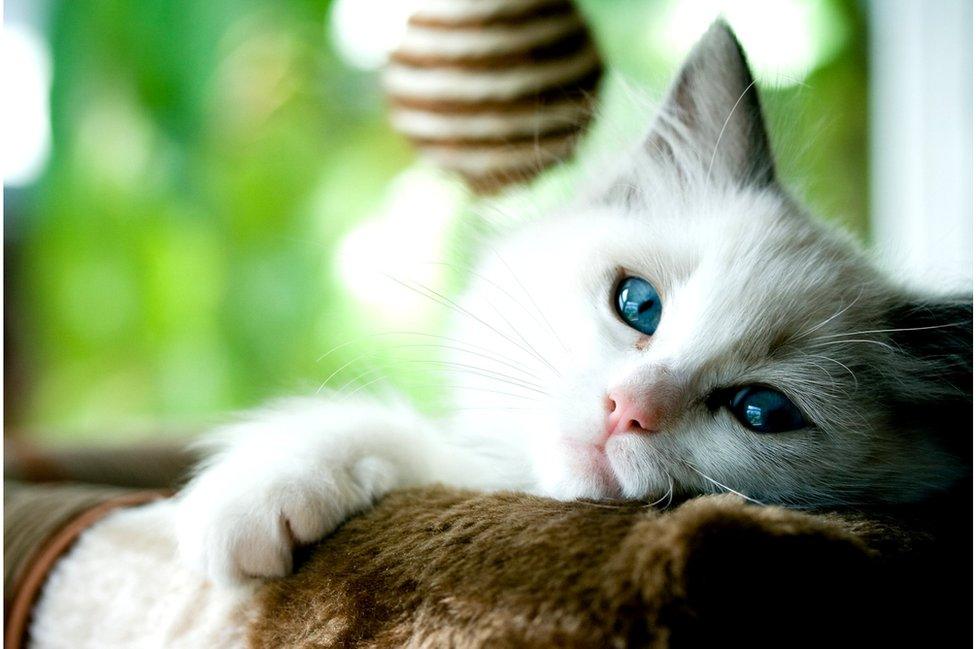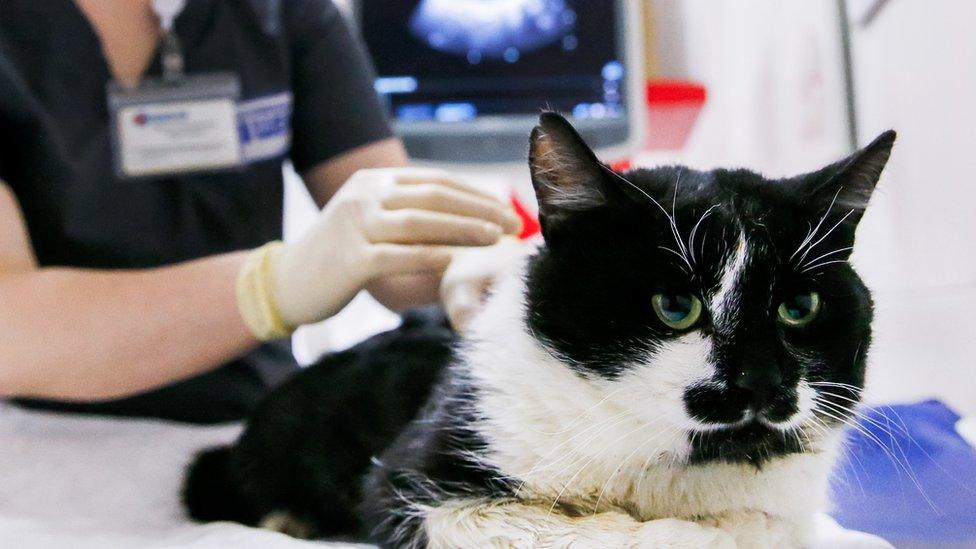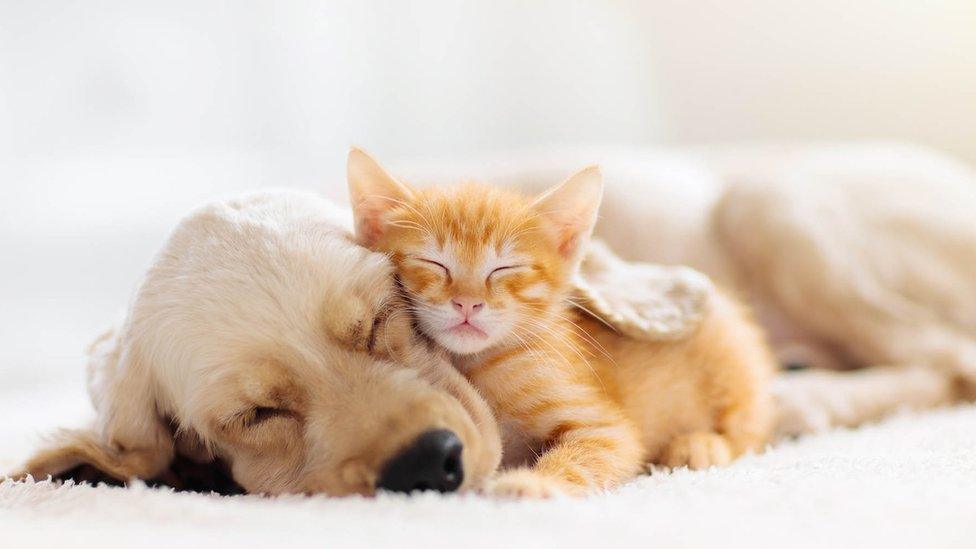Covid: Scientists find more evidence of human-to-cat transmission
- Published
- comments

The first case was a four-month-old Ragdoll kitten (stock photo)
Scottish scientists have identified two cases where humans are thought to have passed Covid-19 to their cats.
Researchers at the University of Glasgow said both cats developed the virus after their owners.
They were of different breeds and lived in separate households. One displayed mild symptoms but the other had to be put down.
Scientists now want to improve understanding of whether pets can play a role in infecting humans.
The cases were found as part of a screening programme of the feline population in the UK.
Researchers believe both pets were infected by their owners, who had Covid-19 symptoms before the cats became unwell.
The study, published in the Veterinary Record, external, said there is currently no evidence of cat-to-human transmission or that cats, dogs or other domestic animals play any appreciable role in the epidemiology of human Covid infections.
But the scientists said domestic animals could potentially act as a "viral reservoir" allowing continued transmission, and said it was important to improve understanding of whether pets can play a role in infecting humans.
'Relatively low risk'
Prof Margaret Hosie, from the MRC-University of Glasgow Centre for Virus Research who was lead author of the study, said: "These two cases of human-to-animal transmission, found in the feline population in the UK, demonstrate why it is important that we improve our understanding of animal Sars-CoV-2 infection.
"Currently, animal-to-human transmission represents a relatively low risk to public health in areas where human-to-human transmission remains high.
"However, as human cases decrease, the prospect of transmission among animals becomes increasingly important as a potential source of Sars-CoV-2 reintroduction to humans."
She added: "It is therefore important to improve our understanding of whether exposed animals could play any role in transmission."

There have been reports of cats from Covid-positive households in countries including Hong Kong, Belgium, the USA, France and Spain
Researchers at the centre worked in partnership with the Veterinary Diagnostic Service (VDS) at the university's School of Veterinary Medicine on the study.
The first cat was a four-month-old female Ragdoll kitten from a household in which the owner developed symptoms that were consistent with Covid at the end of March 2020, although they were not tested.
The kitten was taken to a vet with breathing difficulties in April 2020 but its condition deteriorated and it later had to be put down.
Post-mortem lung samples revealed damage consistent with a viral pneumonia and there was evidence of Sars-CoV-2 infection.
Mild symptoms
The second cat was a six-year-old female Siamese from a household where one owner tested positive for Covid-19.
The cat was taken to the vet with nasal discharge and conjunctivitis, but its symptoms remained mild and the cat later recovered.
Covid-19 infection was confirmed in a retrospective survey of swabs submitted to VDS between March and July 2020 for routine pathogen testing.
Scientists believe the two cases are likely to be an underestimate of the true frequency of human-to-animal transmission, as animal testing is limited.

The study was led from the MRC-University of Glasgow Centre for Virus Research
Since the pandemic began there have been reports of cats from Covid-positive households in countries including Hong Kong, Belgium, the USA, France and Spain that tested positive for the virus and were presumed to be infected from their owners.
Prof James Wood, head of the Department of Veterinary Medicine at Cambridge University said: "These are important and interesting findings, adding to the body of evidence that humans can infect their pets, in some cases, as here, leading to clinical disease in the animals.
"Cats and dogs have been reported to be infected. This is a high quality study, including whole genome sequencing to confirm transmission links."
The study was funded by the Wellcome ISSF Covid Response Fund and supported by the Medical Research Council.


- Published27 July 2020

- Published10 April 2020
